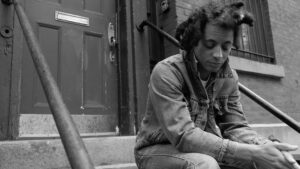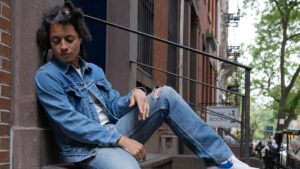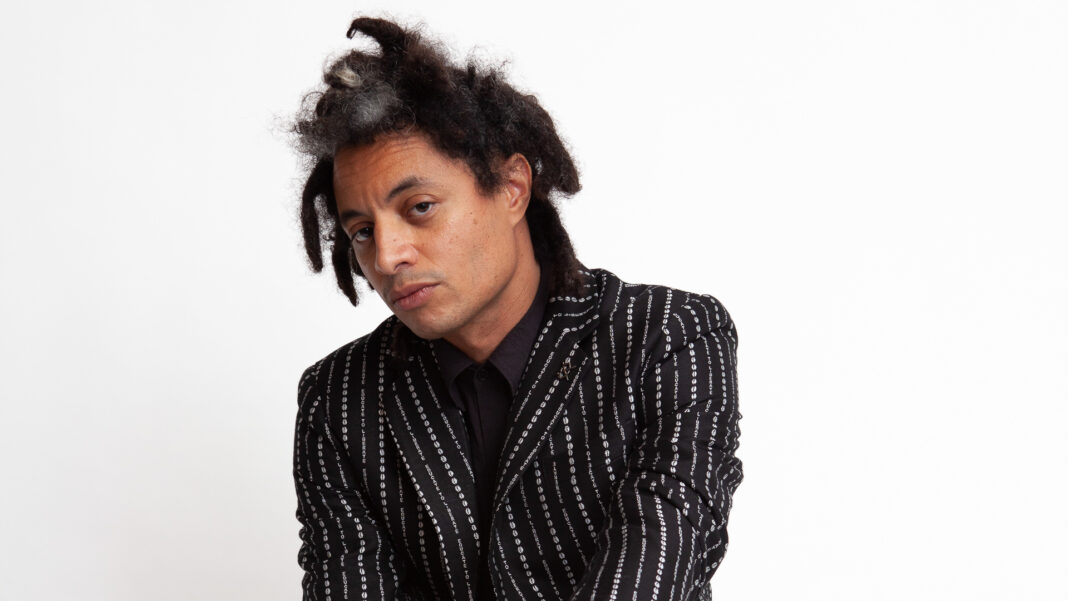
In the music world the three Bs traditionally stand for Bach, Beethoven and Brahms. For jazz singer José James they stand for Billie, Bill and Badu (as in Holiday, Withers and Erykah).
His most recent album, On & On, was released at the beginning of this year and finds James putting his own vocal stylings to the songs of Erykah Badu. In 2015 he released Yesterday I Had the Blues: The Music of Billie Holiday and in 2018 he released Lean On Me, a selection of songs by Bill Withers.
This Saturday James concludes his summer US tour in support of On & On at The Ford Theatre in Los Angeles. This will be the first and only show of the tour that will feature his entire band that appeared on the album performing with him live.
Earlier this week I spoke with James about Erykah Badu and her music, lessons he’s learned over the years of his career and the challenges he faces as a jazz singer. What follows are excerpts from our conversation that have been edited for length and clarity. To see the full interview, please go to our YouTube channel.
What does this music that you’re performing mean to you now that is perhaps different than what it meant to you when you first recorded it or when you first started playing it live?
I first approached it from what it meant to me. To me, Erykah Badu is kind of like the Joni Mitchell of my generation. She changed the game with her songwriting, with her musicality, with her presentation, with the way that she effortlessly blended all these genres. So I think I first made the album and thought about it in terms of wanting to respect what she had created and find a way in. Now that I’ve been performing it for quite a while, the songs have sort of become mine.
There’s this beautiful moment where the ownership transfers to the performer. That happened with the Bill Withers project, too. You start putting your own thoughts and feelings and emotions into these songs. It really becomes a deeply powerful way to bring a piece of yourself to these songs that are so familiar to all of us. We’ve been kind of taking it in different directions every night. So now what you have is this deeply personal and deeply creative world that exists alongside Badu’s world.
What is the story you want to tell about yourself through her music?
I think there’s a degree of deep seriousness these days around what jazz singers can do. Why is hip hop and R&B this impenetrable place that jazz singers can’t go? So to me, it’s really about breaking new ground. I’m always excited when it’s something that nobody’s really done before because it feels fresh and it feels like there’s a discovery here. That’s the most powerful thing we can do as artists.
I played Erykah Badu’s songs and I don’t think what you’ve done is a huge leap. This makes complete sense to me.
It’s not a huge leap. We didn’t completely take apart her stuff and make it atonal or something. That’s part of the history of jazz singers, too. When Ella did her celebrated songbook series, she sang the melody, she sang the songs, but it’s the way that she did it, with the phrasing and the rhythm and the inflection and her history that made it jazz to me. Some of the songs I didn’t really change one note of the melody, but in order for me to get inside of her phrasing and then make it my own.
What I was referring to mostly was the fact that I heard a lot of jazz in what she was doing.
That is so true, especially on her first two albums. There’s like upright bass on there, you know, like Appletree. Maybe it sounds like she’s performing with the jazz trio, which is so cool.
You’re a huge fan of Johnny Hartman and John Coltrane’s collaboration. I think you’ve said that’s the best male jazz vocalist album. Hartman did an interview with the New York Times in 1982, and he said, “The more you sing a song, you are apt to change it. It reflects the moods that you’re in.” Do you share that opinion about the many songs that you’ve recorded, whether they’re your own or somebody else’s?
Jazz is Shakespeare. This is the classical repertoire. As you mature, hopefully, and deepen, hopefully, and go through some life experiences, then all of a sudden the words in the text become more relevant to you. Definitely when I first sang it, you know, this idea of being touched either physically or emotionally by this other person and kind of reminiscing about that moment, the times was much closer. But now that I’m 45, I can really think of a lot of different ways. For example, like a mentor who opened my world to jazz or to poetry or art kind of changes the feeling of it for me. Even though it’s ostensibly a romantic song, in my mind it’s turned into something else, which I hope comes across in the interpretation.
Should an artist have just a narrow range of interest and a way of expressing his or herself? Does it frustrate you that people seem to want you to be one thing because that’s easiest for them?
It has been frustrating in the past. I think I’ve sort of made peace and found my happy medium with how much I need to explore and how much we exist in service to people. That was a big shift in the pandemic for me. A lot of time to think about why I do it and when I would hopefully come back to jazz singing and performing would I do anything differently. The shift for me was I think I’ve artistically pushed the boundaries as far as I want to. Now my challenge is how creative can I be within sort of like the parameters that my fans enjoy because I definitely pushed it at some points past what my fans enjoy. For the hip hop kids who are like, why are you doing a duo with the jazz pianist? Or for the jazz purist you’re doing trap drums with autotune? There’s beautiful space in the middle, which I love. I think part of getting older is finding what you do best and figuring out how to explore that infinitely.

In an interview that you did in 2012 with the MinnPost you said, “If I could do jazz the way I wanted to, I would, but I just can’t. I can’t do it with the freedom I want or the audience development I want.” Along with your own perspective that you just expressed changing, has anything else changed for you in the 11 years since that comment that makes that less true today?
I think what’s changed is seeing people who have done both and in talking to some of them. Hearing the frustration of some people [who] feel like they’re in golden handcuffs and they can’t write songs or do things or produce that they want to. Then other people who spent their whole career just throwing paint against the wall but now want to sort of hit this commercial high. They’re not able to because they’re all over the map. Being at peace with your choice, no matter what the result is, that’s the challenge.
McCoy Tyner gave you great advice to just be yourself when you were touring with him. Knowing how much Coltrane means to you and how much McCoy Tyner means to you, which was more important, the advice or the man who was giving it to you?
The advice coming from him had a lot more weight. The thing about McCoy, which I found with a lot of living legends across genres, is that they are never looking backwards. McCoy was never telling people how to play. He was always positive. He was always uplifting. He really was in service to the music, to the audience and to his musicians. Never met another musician who was more generous with compliments or energy on stage.
If you could go back in time to when you were in an a-cappella group called Cerulean and give yourself advice that you think your 16-year-old self really needed to hear to help him navigate his way through the life and career that you’ve had, what would that be?
I can’t believe that you found out about Cerulean, but I love it. I think I would just tell him that everything you believe about music and yourself right now is absolutely true. No matter what comes and goes, you don’t have to worry about anything. The cliché thing is true. The highs and the lows can knock you down. I remember when I was doing Letterman and Conan O’Brien, that was a bit too overwhelming for me. I wasn’t really ready for it. The downs, I haven’t sung in two years because of COVID. I wasn’t ready for that either. In both of those times I definitely did tap into how I felt about music back then because sometimes just putting on your favorite album and remembering this is why I do it is the most important thing.
To see the full interview with José James, please go here.
All photos by Janette Beckman/Courtesy Rainbow Blonde Records











